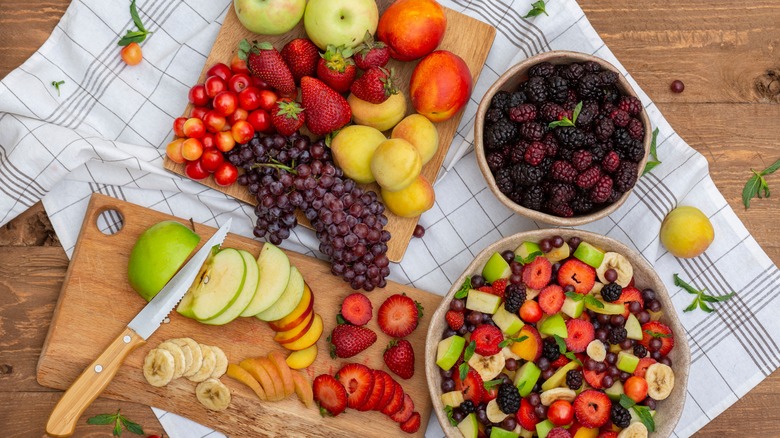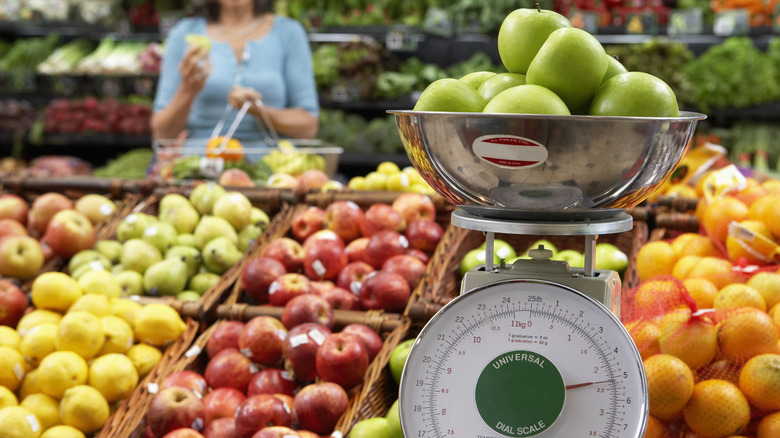Science Explains Why Certain Fruits Ripen Once Picked
You may have noticed that some fruits, like oranges, lemons, and limes, don't continue ripening once you bring them home — but others, like avocados and bananas, can get mushy and brown if you let them sit on the counter for too long. It turns out there's a science-backed reason to explain this, and it has everything to do with the type of produce you buy. Fruit can be sorted into climacteric and non-climacteric categories, where the former keep ripening after they're harvested, and the latter don't.
If you've ever placed an avocado next to a banana to help it get soft more quickly, you're probably aware of ethylene, a gas that accelerates ripening. Climacteric fruits produce a rush of ethylene after they're harvested that causes them to continue ripening, while the ethylene in non-climacteric ones remains stable after harvest. Fruits also rely on respiration — a process where they use their nutrients to keep themselves alive, to prevent them from spoiling. When climacteric fruits are picked, they are able to sustain themselves for a little bit longer — but when the same thing happens for non-climacteric ones, their freshness begins to decline, and they slowly start to spoil.
What to look for when shopping for fruit at the grocery store
That's not to say that non-climacteric fruits don't fully ripen; it just means that picking them arrests this process. These kinds of fruits are also basically unaffected by the presence of ethylene gas once harvested, meaning you shouldn't pick them early, expecting them to mature later. Non-climacteric fruits include berries, grapes, pineapple, pomegranates, watermelons, and many more — and if you see any of them starting to soften at the grocery store, this is likely due to early stages of spoiling instead of continued ripening.
On the other hand, climacteric fruits tend to be picked a little before they're fully ready to eat to allow for continued ripening time during transport and while on grocery store shelves. They must be harvested slightly before the end of their growth period because they will continue to ripen after they're disconnected from the plant. If you buy any climacteric fruits while they're still a little hard, chances are you'll get a soft version in a few days. Besides avocados and bananas, apples, mangoes, papaya, and stone fruits like apricots, peaches, and plums all fall into this category. So if you see your peaches start to ripen while your grapes stay the same, you'll now know the science-backed reason why.

